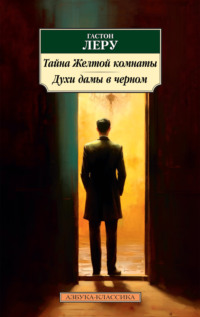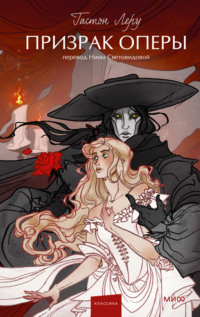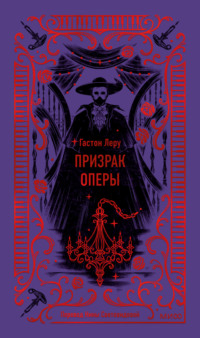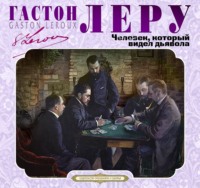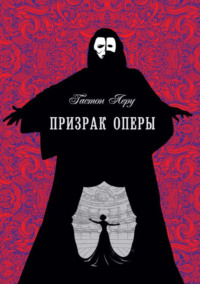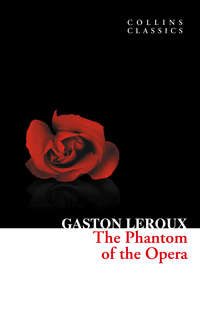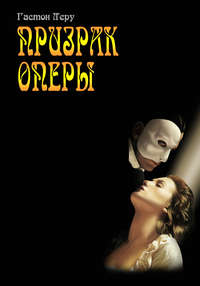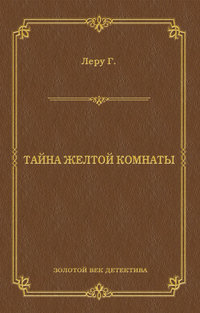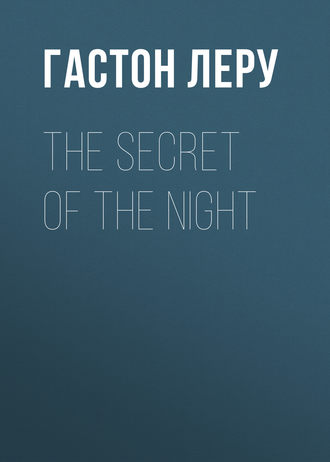 полная версия
полная версияThe Secret of the Night
When she had said this, Matrena stopped, as if, overcome, she could not tell more.
“Well?” insisted Rouletabille.
“Well, I replaced things as I found them and made rapid inquiries of the police and their chief; no one had entered the ground-floor. You understand me?—no one at all. Neither had anyone come out from it.”
“How could anyone come out if no one had entered?”
“I wish to say,” said she with a sob, “that Natacha during this space of time had been in her chamber, in her chamber on the ground-floor.”
“You appear to be very disturbed, madame, at this recollection. Can you tell me further, and precisely, why you are agitated?”
“You understand me, surely,” she said, shaking her head.
“If I understand you correctly, I have to understand that from the previous time you examined the floor until the time that you noted three more nails drawn out, no other person could have entered the dining-room but you and your step-daughter Natacha.”
Matrena took Rouletabille’s hand as though she had reached an important decision.
“My little friend,” moaned she, “there are things I am not able to think about and which I can no longer entertain when Natacha embraces me. It is a mystery more frightful than all else. Koupriane tells me that he is sure, absolutely sure, of the agents he kept here; my sole consolation, do you see, my little friend can tell you frankly, now that you have sent away those men—my sole consolation since that day has been that Koupriane is less sure of his men than I am of Natacha.”
She broke down and sobbed.
When she was calmed, she looked for Rouletabille, and could not find him. Then she wiped her eyes, picked up her dark-lantern, and, furtively, crept to her post beside the general.
For that day these are the points in Rouletabille’s notebook:
“Topography: Villa surrounded by a large garden on three sides. The fourth side gives directly onto a wooded field that stretches to the river Neva. On this side the level of the ground is much lower, so low that the sole window opening in that wall (the window of Natacha’s sitting-room on the ground-floor) is as high from the ground as though it were on the next floor in any other part of the house. This window is closed by iron shutters, fastened inside by a bar of iron.
“Friends: Athanase Georgevitch, Ivan Petrovitch, Thaddeus the timber-merchant (peat boots), Michael and Boris (fine shoes). Matrena, sincere love, blundering heroism. Natacha unknown. Against Natacha: Never there during the attacks. At Moscow at the time of the bomb in the sleigh, no one knows where she was, and it is she who should have accompanied the general (detail furnished by Koupriane that Matrena generously kept back). The night of the bouquet is the only night Natacha has slept away from the house. Coincidence of the disappearance of the nails and the presence all alone on the ground-floor of Natacha, in case, of course, Matrena did not pull them out herself. For Natacha: Her eyes when she looks at her father.”
And this bizarre phrase:
“We mustn’t be rash. This evening I have not yet spoken to Matrena Petrovna about the little hat-pin. That little hat-pin is the greatest relief of my life.”
V. BY ROULETABILLE’S ORDER THE GENERAL PROMENADES
“Good morning, my dear little familiar spirit. The general slept splendidly the latter part of the night. He did not touch his narcotic. I am sure it is that dreadful mixture that gives him such frightful dreams. And you, my dear little friend, you have not slept an instant. I know it. I felt you going everywhere about the house like a little mouse. Ah, it seems good, so good. I slept so peacefully, hearing the subdued movement of your little steps. Thanks for the sleep you have given me, little friend.”
Matrena talked on to Rouletabille, whom she had found the morning after the nightmare tranquilly smoking his pipe in the garden.
“Ah, ah, you smoke a pipe. Now you do certainly look exactly like a dear little domovoi-doukh. See how much you are alike. He smokes just like you. Nothing new, eh? You do not look very bright this morning. You are worn out. I have just arranged the little guest-chamber for you, the only one we have, just behind mine. Your bed is waiting for you. Is there anything you need? Tell me. Everything here is at your service.”
“I’m not in need of anything, madame,” said the young man smilingly, after this outpouring of words from the good, heroic dame.
“How can you say that, dear child? You will make yourself sick. I want you to understand that I wish you to rest. I want to be a mother to you, if you please, and you must obey me, my child. Have you had breakfast yet this morning? If you do not have breakfast promptly mornings, I will think you are annoyed. I am so annoyed that you have heard the secret of the night. I have been afraid that you would want to leave at once and for good, and that you would have mistaken ideas about the general. There is not a better man in the world than Feodor, and he must have a good, a very good conscience to dare, without fail, to perform such terrible duties as those at Moscow, when he is so good at heart. These things are easy enough for wicked people, but for good men, for good men who can reason it out, who know what they do and that they are condemned to death into the bargain, it is terrible, it is terrible! Why, I told him the moment things began to go wrong in Moscow, ‘You know what to expect, Feodor. Here is a dreadful time to get through—make out you are sick.’ I believed he was going to strike me, to kill me on the spot. ‘I! Betray the Emperor in such a moment! His Majesty, to whom I owe everything! What are you thinking of, Matrena Petrovna!’ And he did not speak to me after that for two days. It was only when he saw I was growing very ill that he pardoned me, but he had to be plagued with my jeremiads and the appealing looks of Natacha without end in his own home each time we heard any shooting in the street. Natacha attended the lectures of the Faculty, you know. And she knew many of them, and even some of those who were being killed on the barricades. Ah, life was not easy for him in his own home, the poor general! Besides, there was also Boris, whom I love as well, for that matter, as my own child, because I shall be very happy to see him married to Natacha—there was poor Boris who always came home from the attacks paler than a corpse and who could not keep from moaning with us.”
“And Michael?” questioned Rouletabille.
“Oh, Michael only came towards the last. He is a new orderly to the general. The government at St. Petersburg sent him, because of course they couldn’t help learning that Boris rather lacked zeal in repressing the students and did not encourage the general in being as severe as was necessary for the safety of the Empire. But Michael, he has a heart of stone; he knows nothing but the countersign and massacres fathers and mothers, crying, ‘Vive le Tsar!’ Truly, it seems his heart can only be touched by the sight of Natacha. And that again has caused a good deal of anxiety to Feodor and me. It has caught us in a useless complication that we would have liked to end by the prompt marriage of Natacha and Boris. But Natacha, to our great surprise, has not wished it to be so. No, she has not wished it, saying that there is always time to think of her wedding and that she is in no hurry to leave us. Meantime she entertains herself with this Michael as if she did not fear his passion, and neither has Michael the desperate air of a man who knows the definite engagement of Natacha and Boris. And my step-daughter is not a coquette. No, no. No one can say she is a coquette. At least, no one had been able to say it up to the time that Michael arrived. Can it be that she is a coquette? They are mysterious, these young girls, very mysterious, above all when they have that calm and tranquil look that Natacha always has; a face, monsieur, as you have noticed perhaps, whose beauty is rather passive whatever one says and does, excepting when the volleys in the streets kill her young comrades of the schools. Then I have seen her almost faint, which proves she has a great heart under her tranquil beauty. Poor Natacha! I have seen her excited as I over the life of her father. My little friend, I have seen her searching in the middle of the night, with me, for infernal machines under the furniture, and then she has expressed the opinion that it is nervous, childish, unworthy of us to act like that, like timid beasts under the sofas, and she has left me to search by myself. True, she never quits the general. She is more reassured, and is reassuring to him, at his side. It has an excellent moral effect on him, while I walk about and search like a beast. And she has become as fatalistic as he, and now she sings verses to the guzla, like Boris, or talks in corners with Michael, which makes the two enraged each with the other. They are curious, the young women of St. Petersburg and Moscow, very curious. We were not like that in our time, at Orel. We did not try to enrage people. We would have received a box on the ears if we had.”
Natacha came in upon this conversation, happy, in white voile, fresh and smiling like a girl who had passed an excellent night. She asked after the health of the young man very prettily and embraced Matrena, in truth as one embraces a much-beloved mother. She complained again of Matrena’s night-watch.
“You have not stopped it, mamma; you have not stopped it, eh? You are not going to be a little reasonable at last? I beg of you! What has given me such a mother! Why don’t you sleep? Night is made for sleep. Koupriane has upset you. All the terrible things are over in Moscow. There is no occasion to think of them any more. That Koupriane makes himself important with his police-agents and obsesses us all. I am convinced that the affair of the bouquet was the work of his police.”
“Mademoiselle,” said Rouletabille, “I have just had them all sent away, all of them—because I think very much the same as you do.”
“Well, then, you will be my friend, Monsieur Rouletabille I promise you, since you have done that. Now that the police are gone we have nothing more to fear. Nothing. I tell you, mamma; you can believe me and not weep any more, mamma dear.”
“Yes, yes; kiss me. Kiss me again!” repeated Matrena, drying her eyes. “When you kiss me I forget everything. You love me like your own mother, don’t you?”
“Like my mother. Like my own mother.”
“You have nothing to hide from me?—tell me, Natacha.”
“Nothing to hide.”
“Then why do you make Boris suffer so? Why don’t you marry him?”
“Because I don’t wish to leave you, mamma dear.”
She escaped further parley by jumping up on the garden edge away from Khor, who had just been set free for the day.
“The dear child,” said Matrena; “the dear little one, she little knows how much pain she has caused us without being aware of it, by her ideas, her extravagant ideas. Her father said to me one day at Moscow, ‘Matrena Petrovna, I’ll tell you what I think—Natacha is the victim of the wicked books that have turned the brains of all these poor rebellious students. Yes, yes; it would be better for her and for us if she did not know how to read, for there are moments—my word!—when she talks very wildly, and I have said to myself more than once that with such ideas her place is not in our salon hut behind a barricade. All the same,’ he added after reflection, ‘I prefer to find her in the salon where I can embrace her than behind a barricade where I would kill her like a mad dog.’ But my husband, dear little monsieur, did not say what he really thinks, for he loves his daughter more than all the rest of the world put together, and there are things that even a general, yes, even a governor-general, would not be able to do without violating both divine and human laws. He suspects Boris also of setting Natacha’s wits awry. We really have to consider that when they are married they will read everything they have a mind to. My husband has much more real respect for Michael Korsakoff because of his impregnable character and his granite conscience. More than once he has said, ‘Here is the aide I should have had in the worst days of Moscow. He would have spared me much of the individual pain.’ I can understand how that would please the general, but how such a tigerish nature succeeds in appealing to Natacha, how it succeeds in not actually revolting her, these young girls of the capital, one never can tell about them—they get away from all your notions of them.”
Rouletabille inquired:
“Why did Boris say to Michael, ‘We will return together’? Do they live together?”
“Yes, in the small villa on the Krestowsky Ostrov, the isle across from ours, that you can see from the window of the sitting-room. Boris chose it because of that. The orderlies wished to have camp-beds prepared for them right here in the general’s house, by a natural devotion to him; but I opposed it, in order to keep them both from Natacha, in whom, of course, I have the most complete confidence, but one cannot be sure about the extravagance of men nowadays.”
Ermolai came to announce the petit-dejeuner. They found Natacha already at table and she poured them coffee and milk, eating away all the time at a sandwich of anchovies and caviare.
“Tell me, mamma, do you know what gives me such an appetite? It is the thought of the way poor Koupriane must have taken this dismissal of his men. I should like to go to see him.”
“If you see him,” said Rouletabille, “it is unnecessary to tell him that the general will go for a long promenade among the isles this afternoon, because without fail he would send us an escort of gendarmes.”
“Papa! A promenade among the islands? Truly? Oh, that is going to be lovely!”
Matrena Petrovna sprang to her feet.
“Are you mad, my dear little domovoi, actually mad?”
“Why? Why? It is fine. I must run and tell papa.”
“Your father’s room is locked,” said Matrena brusquely.
“Yes, yes; he is locked in. You have the key. Locked away until death! You will kill him. It will be you who kills him.”
She left the table without waiting for a reply and went and shut herself also in her chamber.
Matrena looked at Rouletabille, who continued his breakfast as though nothing had happened.
“Is it possible that you speak seriously?” she demanded, coming over and sitting down beside him. “A promenade! Without the police, when we have received again this morning a letter saying now that before forty-eight hours the general will be dead!”
“Forty-eight hours,” said Rouletabille, soaking his bread in his chocolate, “forty-eight hours? It is possible. In any case, I know they will try something very soon.”
“My God, how is it that you believe that? You speak with assurance.”
“Madame, it is necessary to do everything I tell you, to the letter.”
“But to have the general go out, unless he is guarded—how can you take such a responsibility? When I think about it, when I really think about it, I ask myself how you have dared send away the police. But here, at least, I know what to do in order to feel a little safe, I know that downstairs with Gniagnia and Ermolai we have nothing to fear. No stranger can approach even the basement. The provisions are brought from the lodge by our dvornicks whom we have had sent from my mother’s home in the Orel country and who are as devoted to us as bull-dogs. Not a bottle of preserves is taken into the kitchens without having been previously opened outside. No package comes from any tradesman without being opened in the lodge. Here, within, we are able to feel a little safe, even without the police—but away from here—outside!”
“Madame, they are going to try to kill your husband within forty-eight hours. Do you desire me to save him perhaps for a long time—for good, perhaps?”
“Ah, listen to him! Listen to him, the dear little domovoi! But what will Koupriane say? He will not permit any venturing beyond the villa; none, at least for the moment. Ah, now, how he looks at me, the dear little domovoi! Oh, well, yes. There, I will do as you wish.”
“Very well, come into the garden with me.”
She accompanied him, leaning on his arm.
“Here’s the idea,” said Rouletabille. “This afternoon you will go with the general in his rolling-chair. Everybody will follow. Everyone, you understand, Madame—understand me thoroughly, I mean to say that everyone who wishes to come must be invited to. Only those who wish to remain behind will do so. And do not insist. Ah, now, I see, you understand me. Why do you tremble?”
“But who will guard the house?”
“No one. Simply tell the servant at the lodge to watch from the lodge those who enter the villa, but simply from the lodge, without interfering with them, and saying nothing to them, nothing.”
“I will do as you wish. Do you want me to announce our promenade beforehand?”
“Why, certainly. Don’t be uneasy; let everybody have the good news.”
“Oh, I will tell only the general and his friends, you may be sure.”
“Now, dear Madame, just one more word. Do not wait for me at luncheon.”
“What! You are going to leave us?” she cried instantly, breathless. “No, no. I do not wish it. I am willing to do without the police, but I am not willing to do without you. Everything might happen in your absence. Everything! Everything!” she repeated with singular energy. “Because, for me, I cannot feel sure as I should, perhaps. Ah, you make me say these things. Such things! But do not go.”
“Do not be afraid; I am not going to leave you, madame.”
“Ah, you are good! You are kind, kind! Caracho! (Very well.)”
“I will not leave you. But I must not be at luncheon. If anyone asks where I am, say that I have my business to look after, and have gone to interview political personages in the city.”
“There’s only one political personage in Russia,” replied Matrena Petrovna bluntly; “that is the Tsar.”
“Very well; say I have gone to interview the Tsar.”
“But no one will believe that. And where will you be?”
“I do not know myself. But I will be about the house.”
“Very well, very well, dear little domovoi.”
She left him, not knowing what she thought about it all, nor what she should think—her head was all in a muddle.
In the course of the morning Athanase Georgevitch and Thaddeus Tchnitchnikof arrived. The general was already in the veranda. Michael and Boris arrived shortly after, and inquired in their turn how he had passed the night without the police. When they were told that Feodor was going for a promenade that afternoon they applauded his decision. “Bravo! A promenade a la strielka (to the head of the island) at the hour when all St. Petersburg is driving there. That is fine. We will all be there.” The general made them stay for luncheon. Natacha appeared for the meal, in rather melancholy mood. A little before luncheon she had held a double conversation in the garden with Michael and Boris. No one ever could have known what these three young people had said if some stenographic notes in Rouletabille’s memorandum-book did not give us a notion; the reporter had overheard, by accident surely, since all self-respecting reporters are quite incapable of eavesdropping.
The memorandum notes:
Natacha went into the garden with a book, which she gave to Boris, who pressed her hand lingeringly to his lips. “Here is your book; I return it to you. I don’t want any more of them, the ideas surge so in my brain. It makes my head ache. It is true, you are right, I don’t love novelties. I can satisfy myself with Pouchkine perfectly. The rest are all one to me. Did you pass a good night?”
Boris (good-looking young man, about thirty years old, blonde, a little effeminate, wistful. A curious appurtenance in the military household of so vigorous a general). “Natacha, there is not an hour that I can call truly good if I spend it away from you, dear, dear Natacha.”
“I ask you seriously if you have passed a good night?”
She touched his hand a moment and looked into his eyes, but he shook his head.
“What did you do last night after you reached home?” she demanded insistently. “Did you stay up?”
“I obeyed you; I only sat a half-hour by the window looking over here at the villa, and then I went to bed.”
“Yes, it is necessary you should get your rest. I wish it for you as for everyone else. This feverish life is impossible. Matrena Petrovna is getting us all ill, and we shall be prostrated.”
“Yesterday,” said Boris, “I looked at the villa for a half-hour from my window. Dear, dear villa, dear night when I can feel you breathing, living near me. As if you had been against my heart. I could have wept because I could hear Michael snoring in his chamber. He seemed happy. At last, I heard nothing more, there was nothing more to hear but the double chorus of frogs in the pools of the island. Our pools, Natacha, are like the enchanted lakes of the Caucasus which are silent by day and sing at evening; there are innumerable throngs of frogs which sing on the same chord, some of them on a major and some on a minor. The chorus speaks from pool to pool, lamenting and moaning across the fields and gardens, and re-echoing like AEolian harps placed opposite one another.”
“Do AEolian harps make so much noise, Boris?”
“You laugh? I don’t find you yourself half the time. It is Michael who has changed you, and I am out of it. (Here they spoke in Russian.) I shall not be easy until I am your husband. I can’t understand your manner with Michael at all.”
(Here more Russian words which I do not understand.)
“Speak French; here is the gardener,” said Natacha.
“I do not like the way you are managing our lives. Why do you delay our marriage? Why?”
(Russian words from Natacha. Gesture of desperation from Boris.)
“How long? You say a long time? But that says nothing—a long time. How long? A year? Two years? Ten years? Tell me, or I will kill myself at your feet. No, no; speak or I will kill Michael. On my word! Like a dog!”
“I swear to you, by the dear head of your mother, Boris, that the date of our marriage does not depend on Michael.”
(Some words in Russian. Boris, a little consoled, holds her hand lingeringly to his lips.)
Conversation between Michael and Natacha in the garden:
“Well? Have you told him?”
“I ended at last by making him understand that there is not any hope. None. It is necessary to have patience. I have to have it myself.”
“He is stupid and provoking.”
“Stupid, no. Provoking, yes, if you wish. But you also, you are provoking.”
“Natacha! Natacha!”
(Here more Russian.) As Natacha started to leave, Michael placed his hand on her shoulder, stopped her and said, looking her direct in the eyes:
“There will be a letter from Annouchka this evening, by a messenger at five o’clock.” He made each syllable explicit. “Very important and requiring an immediate reply.”
These notes of Rouletabille’s are not followed by any commentary.
After luncheon the gentlemen played poker until half-past four, which is the “chic” hour for the promenade to the head of the island. Rouletabille had directed Matrena to start exactly at a quarter to five. He appeared in the meantime, announcing that he had just interviewed the mayor of St. Petersburg, which made Athanase laugh, who could not understand that anyone would come clear from Paris to talk with men like that. Natacha came from her chamber to join them for the promenade. Her father told her she looked too worried.
They left the villa. Rouletabille noted that the dvornicks were before the gate and that the schwitzar was at his post, from which he could detect everyone who might enter or leave the villa. Matrena pushed the rolling-chair herself. The general was radiant. He had Natacha at his right and at his left Athanase and Thaddeus. The two orderlies followed, talking with Rouletabille, who had monopolized them. The conversation turned on the devotion of Matrena Petrovna, which they placed above the finest heroic traits in the women of antiquity, and also on Natacha’s love for her father. Rouletabille made them talk.
Boris Mourazoff explained that this exceptional love was accounted for by the fact that Natacha’s own mother, the general’s first wife, died in giving birth to their daughter, and accordingly Feodor Feodorovitch had been both father and mother to his daughter. He had raised her with the most touching care, not permitting anyone else, when she was sick, to have the care of passing the nights by her bedside.


